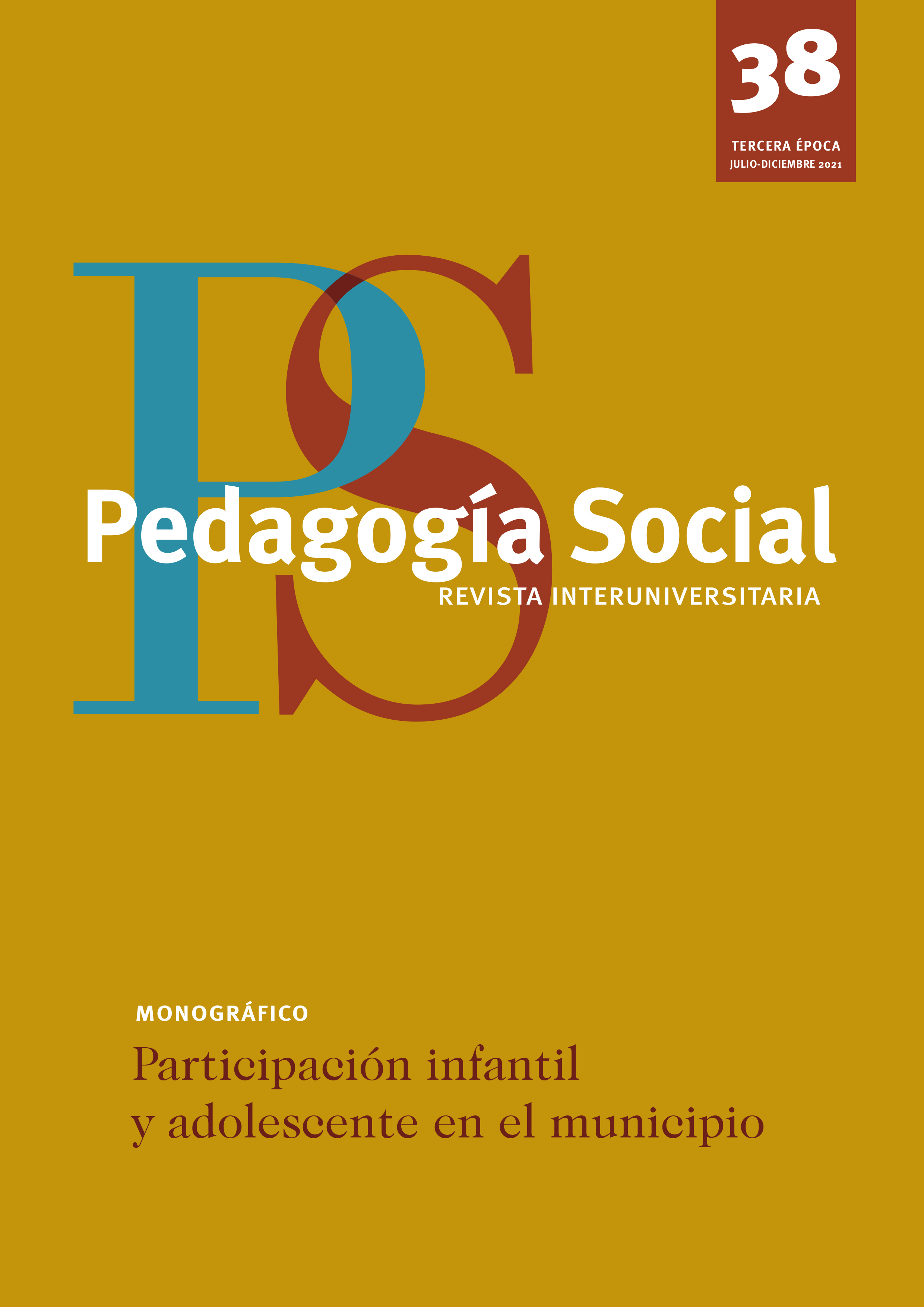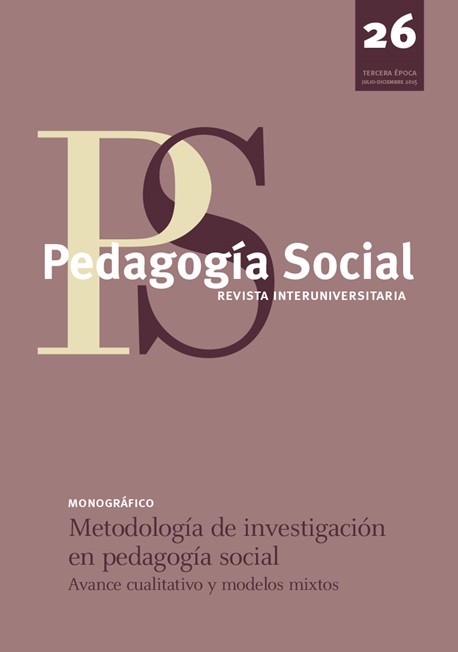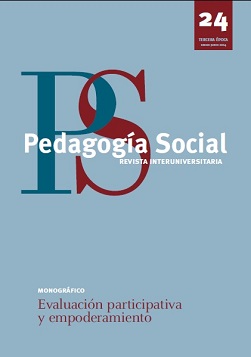Archives
-
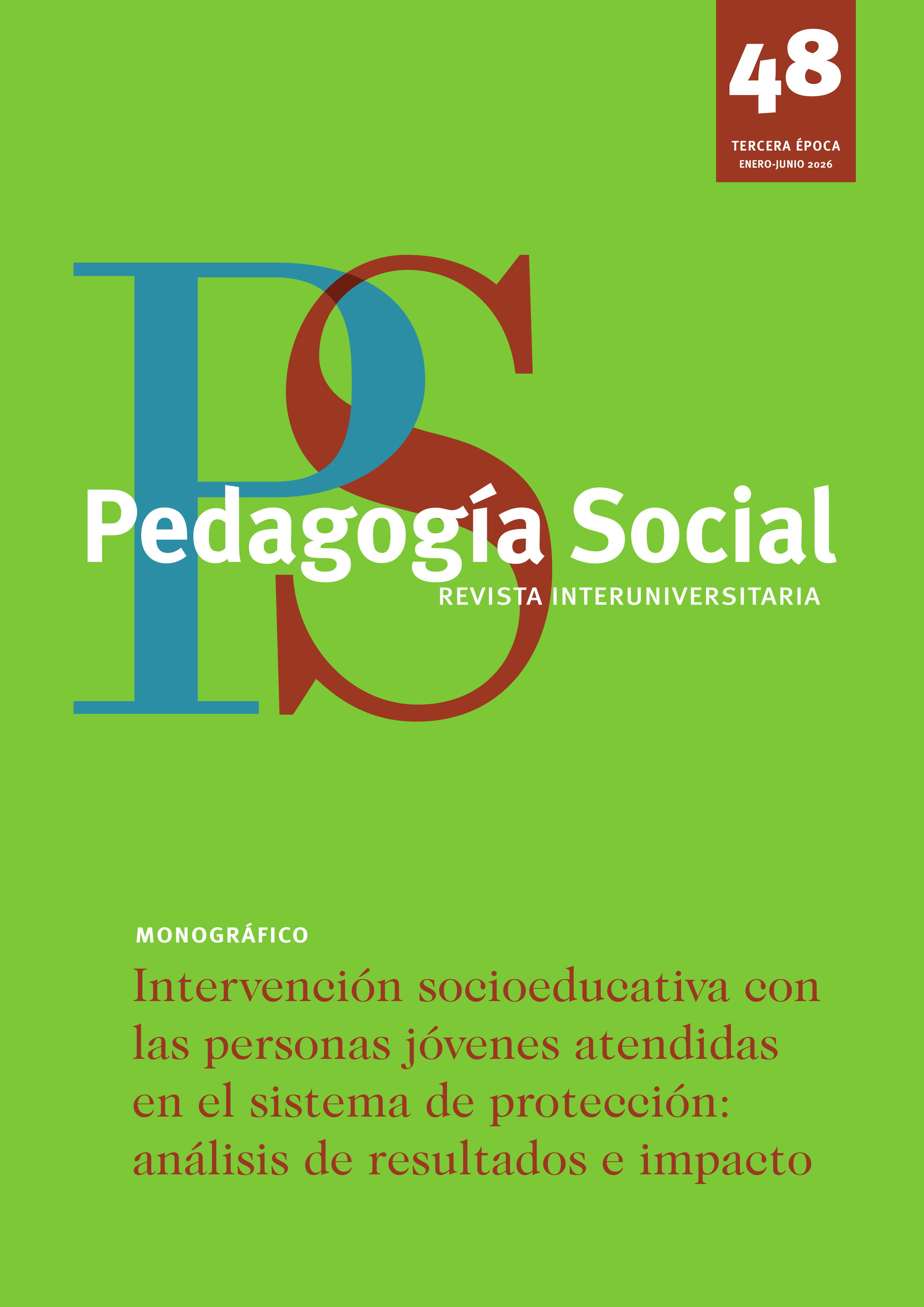
Socio-educational intervention with young people in the child protection system: analysis of results and impact
No. 48 (2026)This special issue examines the results and impacts of public policies and socio-educational intervention programs targeting children and young people with experience in the care system, both during their time in care and throughout their transition to adulthood. It analyses initiatives that integrate socio-educational guidance, emotional support, community-based resources, and opportunities for social participation, evaluating the extent to which these interventions generate significant changes and identifying the factors that explain their effectiveness. The issue also examines the effects of specific policies and institutional measures, such as transitional support programs, on educational access and continuity. The evidence presented contributes to a better understanding of the impact of current measures and interventions and provides insights to refine professional practice and public policy for more tailored support for care-experienced young people.
-
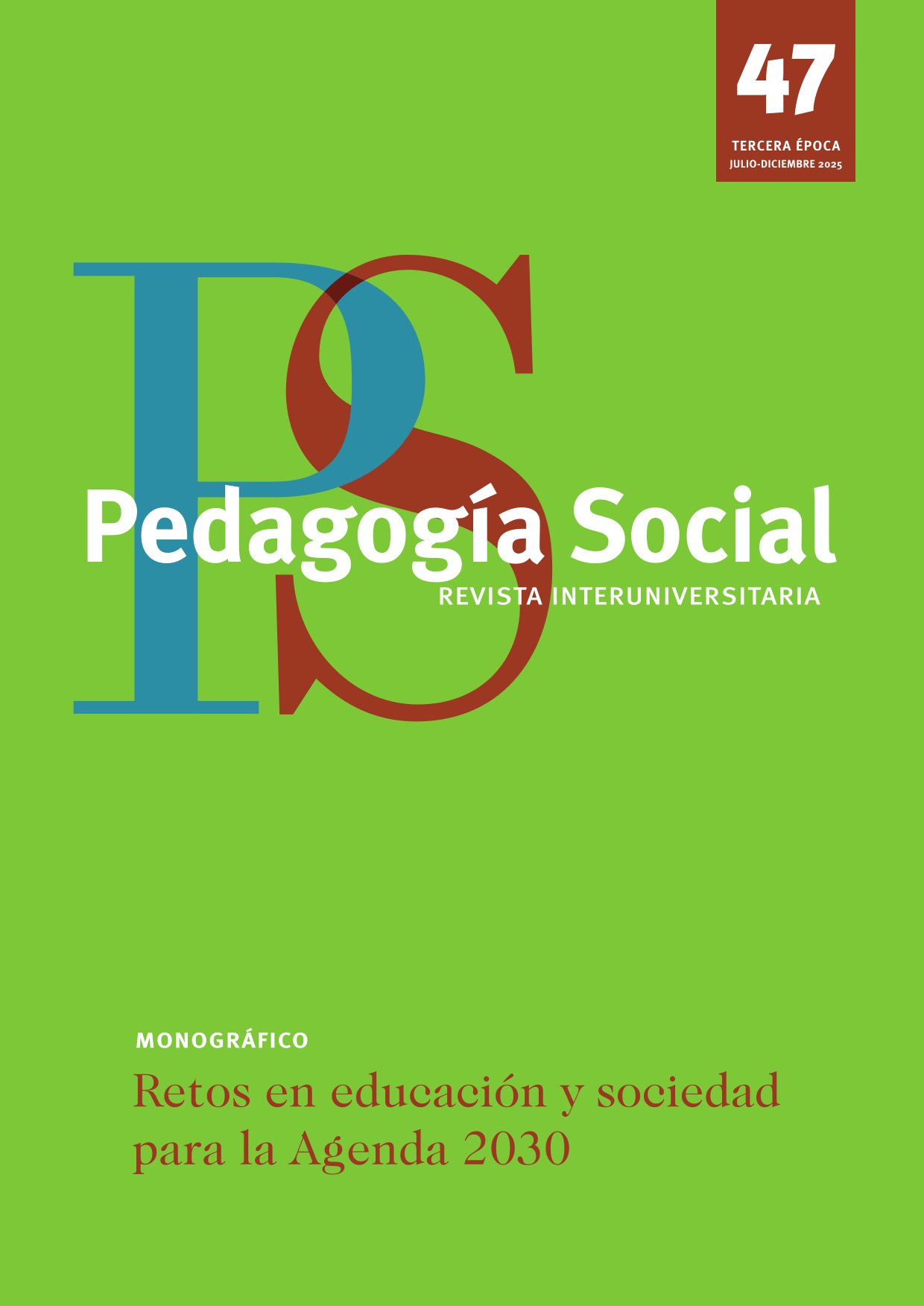
Education and society: challenges for the 2030 Agenda
No. 47 (2025)The monograph examines the fundamental role of education in achieving the 2030 Agenda, particularly through SDG 4, and highlights the urgency of moving from theory to action to drive social transformation and sustainable development. From a multidisciplinary perspective, it addresses both progress and structural constraints, such as insufficient funding and lack of adaptation to specific contexts. The included studies cover topics such as the inclusion of students with ASD, the equalising role of rural schools, educational innovation through UDL, the prevention of early school leaving , the impact of social programmes, the challenges of digital discrimination, gender differences in ageing and the influence of international educational cooperation, providing evidence and critical analysis to move towards fairer and more sustainable societies.
-
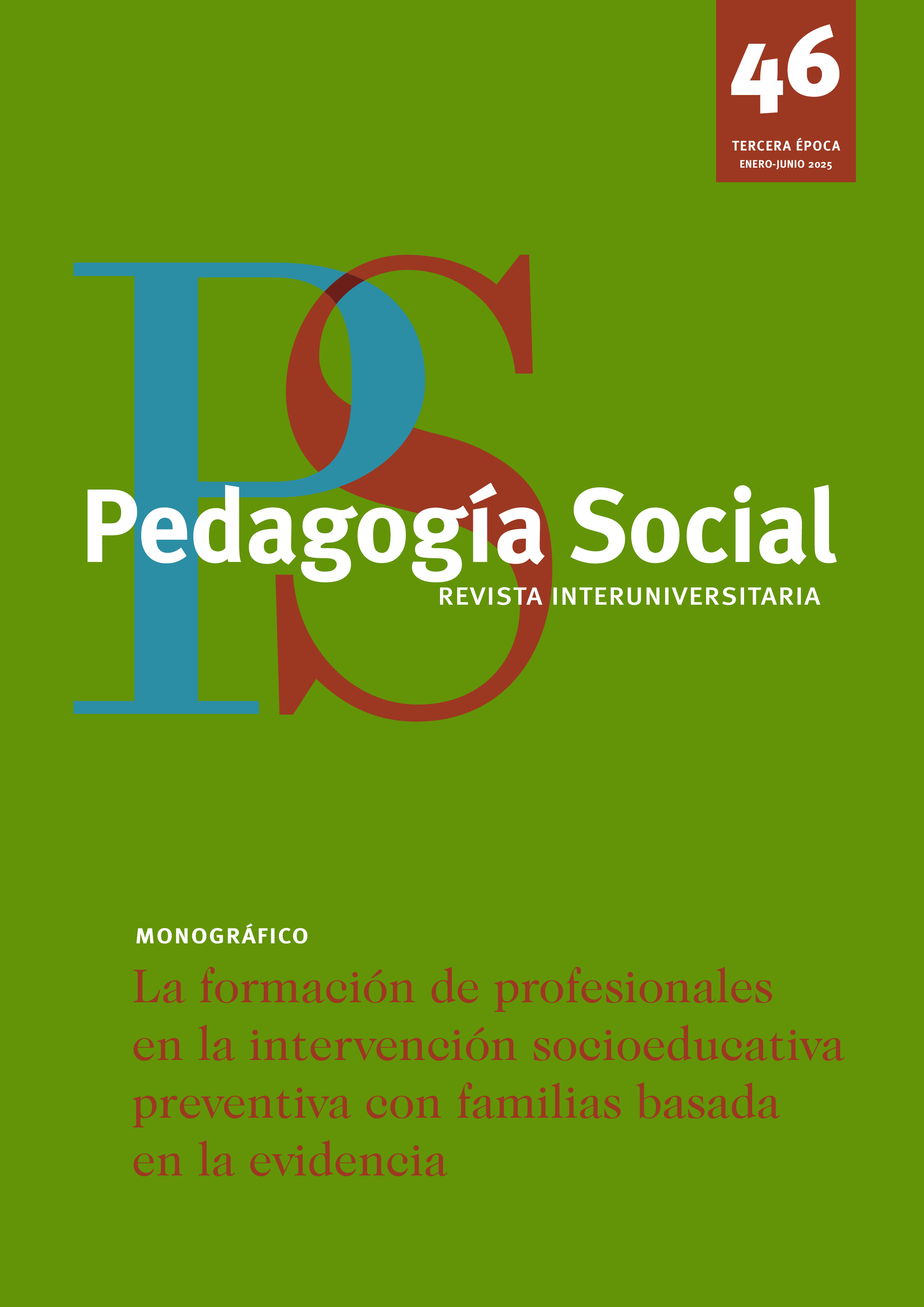
Training professionals in evidence-based preventive socio-educational intervention with families
No. 46 (2025)In the field of Social Pedagogy, there is a long trajectory of searching for preventive socio-educational intervention strategies based on evidence that respond to problems related to risk behaviors in adolescence. In addition, given the social and technological change that has occurred in recent years, especially accelerated by the circumstances of the COVID-19 pandemic, adolescence has intensified new problems, and with them, new challenges for Social Pedagogy.
In the prevention of affective-sexual, addictive and antisocial behavior risks in adolescence, there is the proven path for its effectiveness of evidence-based family programs. The facilitators of these programs require adequate skills and great preparation to implement them. Professionals well trained in evidence-based family programs will be able to effectively collaborate in the success of the interventions. The aim of this special issue is to study how to improve the skills of facilitators in family socio-educational programmes and their adherence to evidence-based practice, in order to improve the effectiveness of these programmes. -
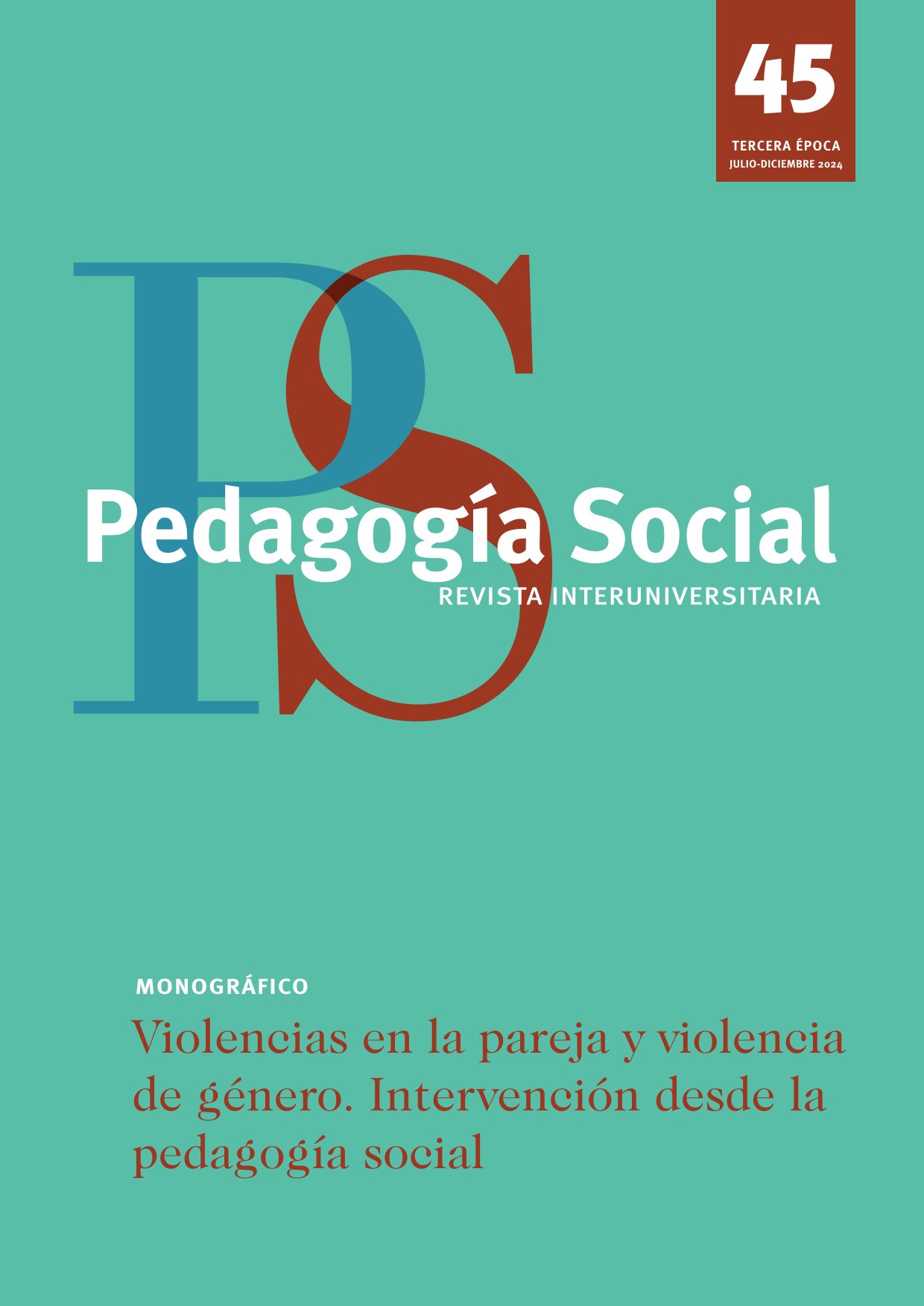
Intimate partner violence and gender violence. Intervention from social pedagogy
No. 45 (2024)The aim of this monograph is to analyse, from different perspectives and with different objects, the complex problem of violence in relationships. Although in the majority of cases, violence is exercised by men against women, the phenomenon is broader and more comprehensive, and in order to be able to tackle it in its entirety and offer effective responses, it is necessary to have an in-depth knowledge of it in all its dimensions. For this reason, unbiased, serious and rigorous studies are needed to analyse this phenomenon in its entirety and to serve as a basis for the design of policies, programmes and projects for socio-educational action that have an effective impact on the resolution of this social scourge.
-
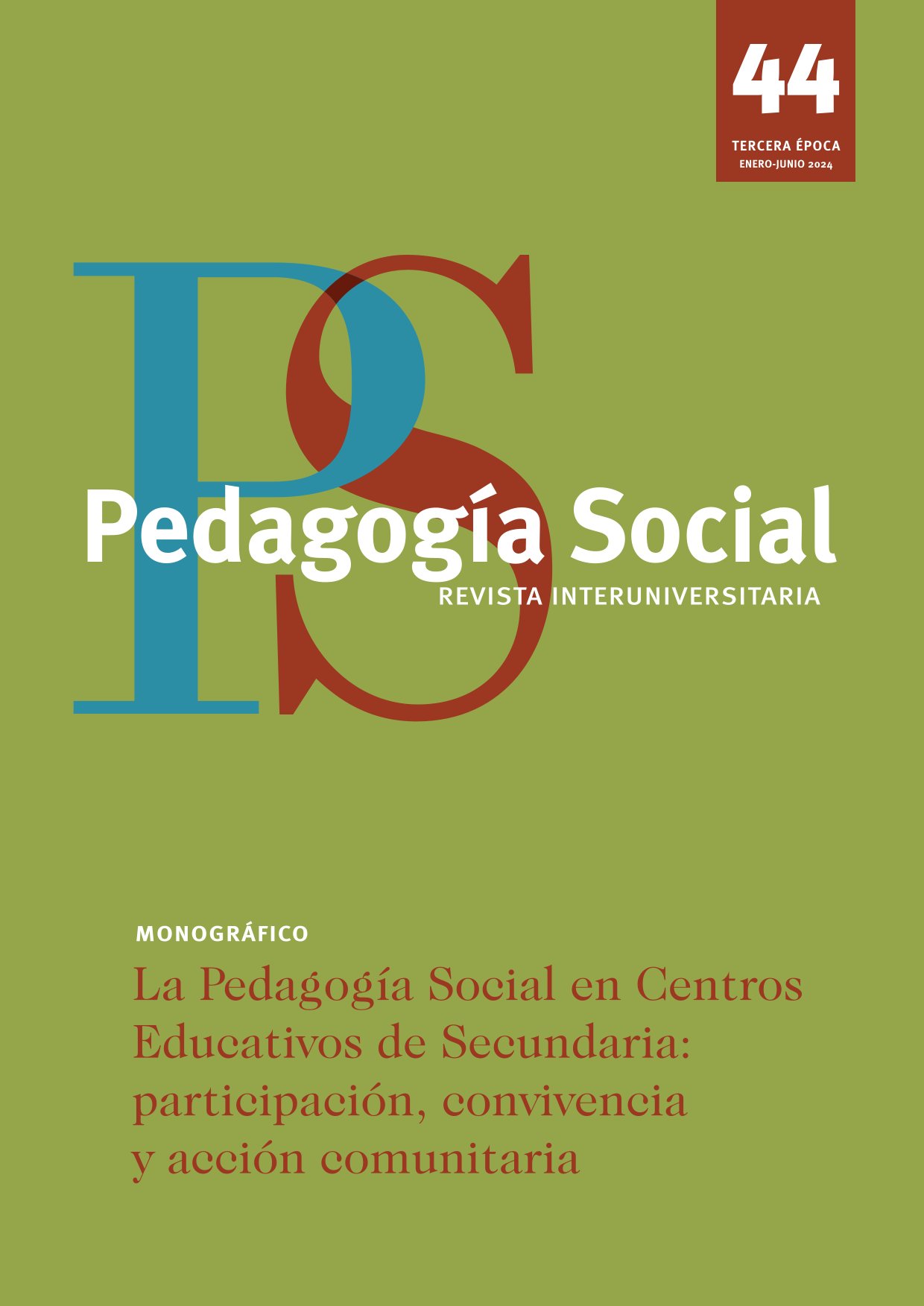
Social Pedagogy in Secondary Schools: participation, coexistence and community action
No. 44 (2024)From both social-pedagogical and social-educational approaches, this monograph aims to address the participation in adolescence and early adulthood stages by the educational body — all from the community-based dimension. Because education does also imply social learning during the exercise of citizenship, the accurate integration of the educational institutions in their near environments, and their involvement in the ethical dimensions of education make up the pillars of above-mentioned learning. Therefore, the volume aims at providing answers inferred from sub-fields like, for example, how the social-educational participation is established along with community’s interrelationships and decision-making in terms of coexistence, inclusion, and the necessary learning from society on the particular “living together” experience.
-
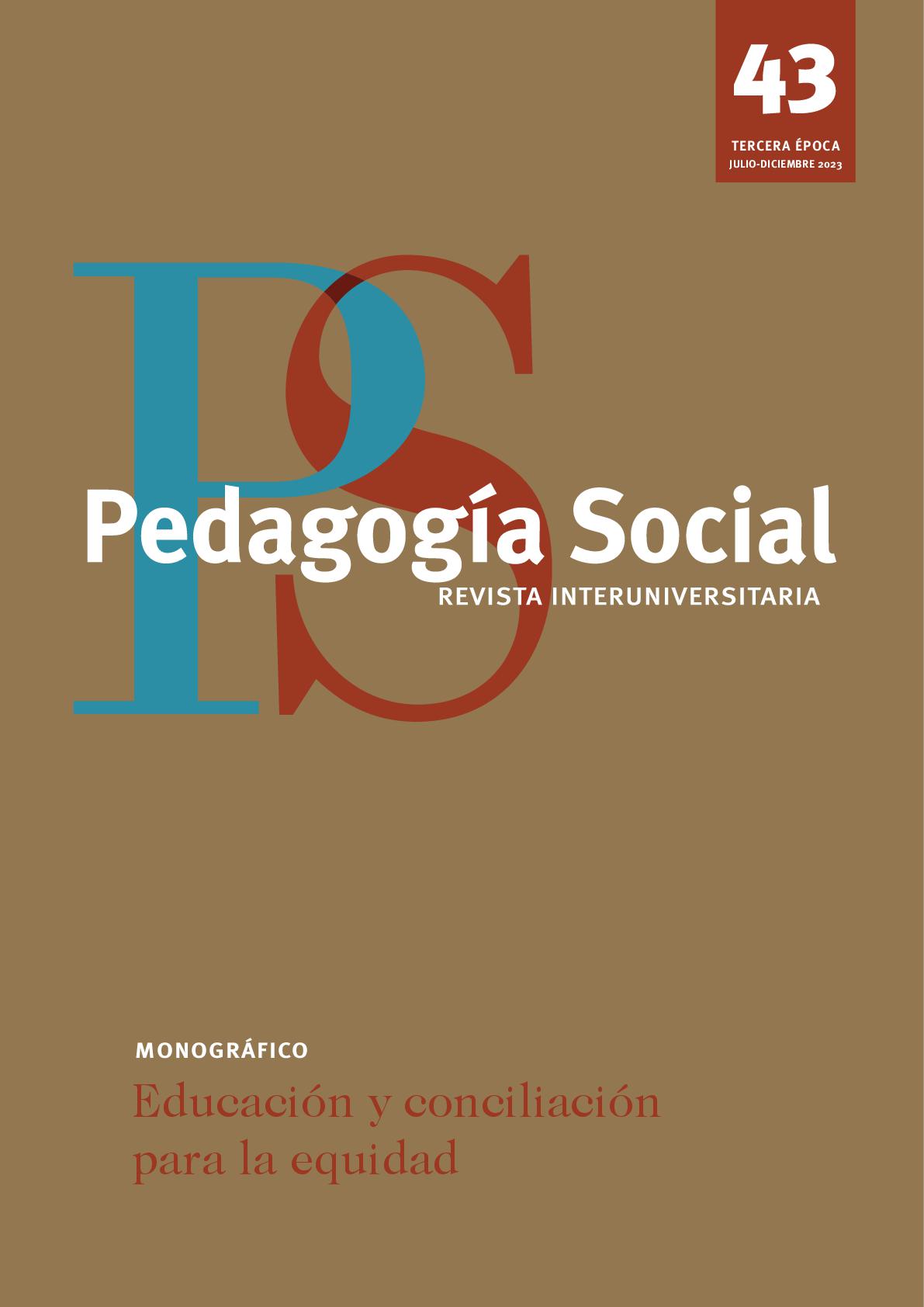
Education and conciliation for equity
No. 43 (2023)This monograph addresses education and conciliation for equity. This number collects different manuscripts that highlight the role of time in the social construction of reality and how its use influences social dynamics, mainly work, school and family. The studies that are presented try to respond, from different methodologies, to the new forms of socialization, to the digital transformation and to the challenge of reconciliation in childhood, the family and in educational institutions from Social Pedagogy and Social Education.
-
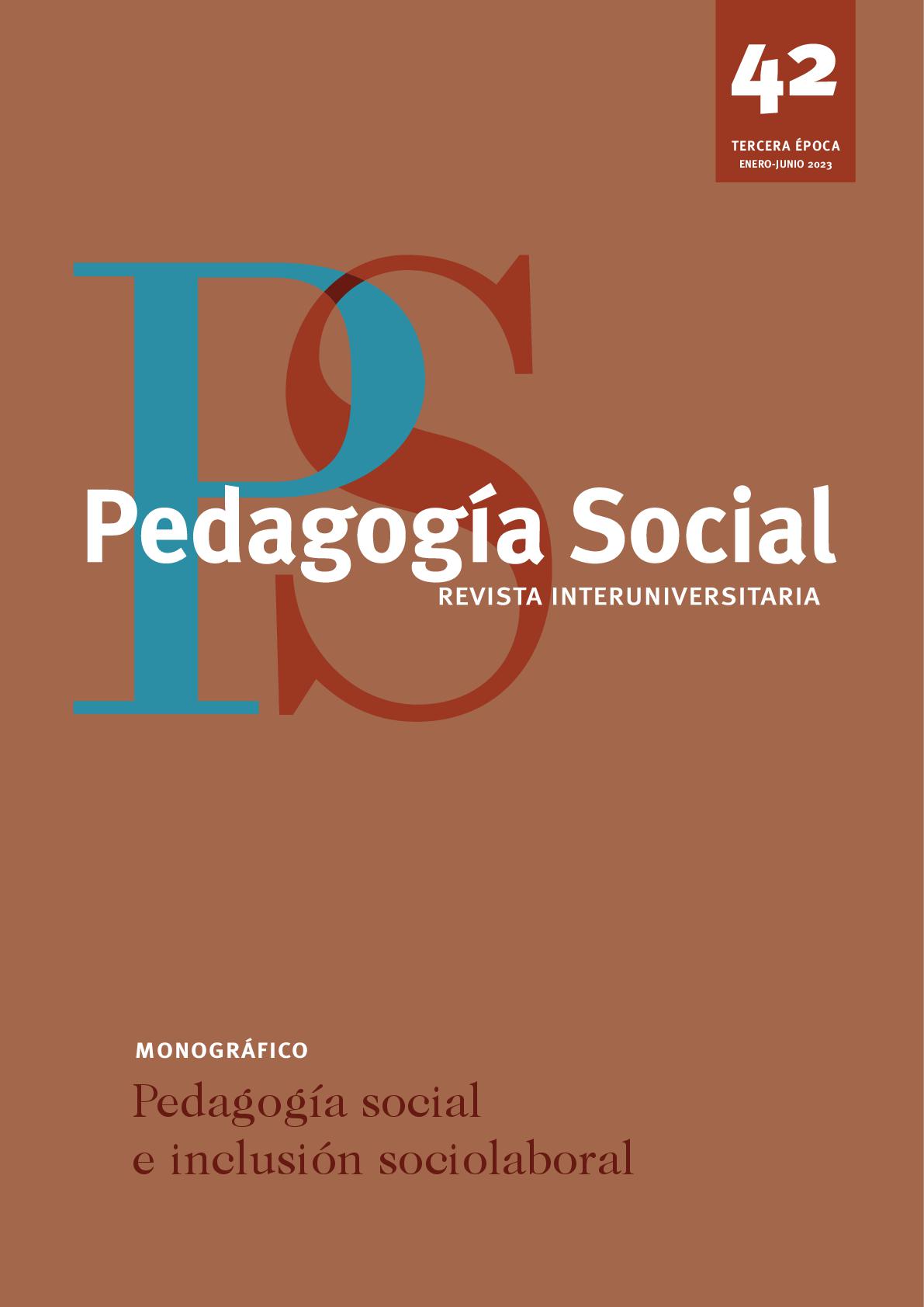
Social pedagogy and socio-labour inclusion
No. 42 (2023)This monograph deals with Social Pedagogy and socio-occupational inclusion. From a socio-economic context, social pedagogy has always had socio-labour inclusion as a particularly relevant concern for human, social and community promotion. This monograph presents new scientific and professional contributions to guide socio-educational action in the field of employment in Ibero-America. In addition, the manuscripts included allow us to identify the social, health and labour scenarios and circumstances experienced with COVID-19 and aligned with the Sustainable Development Goals.
-
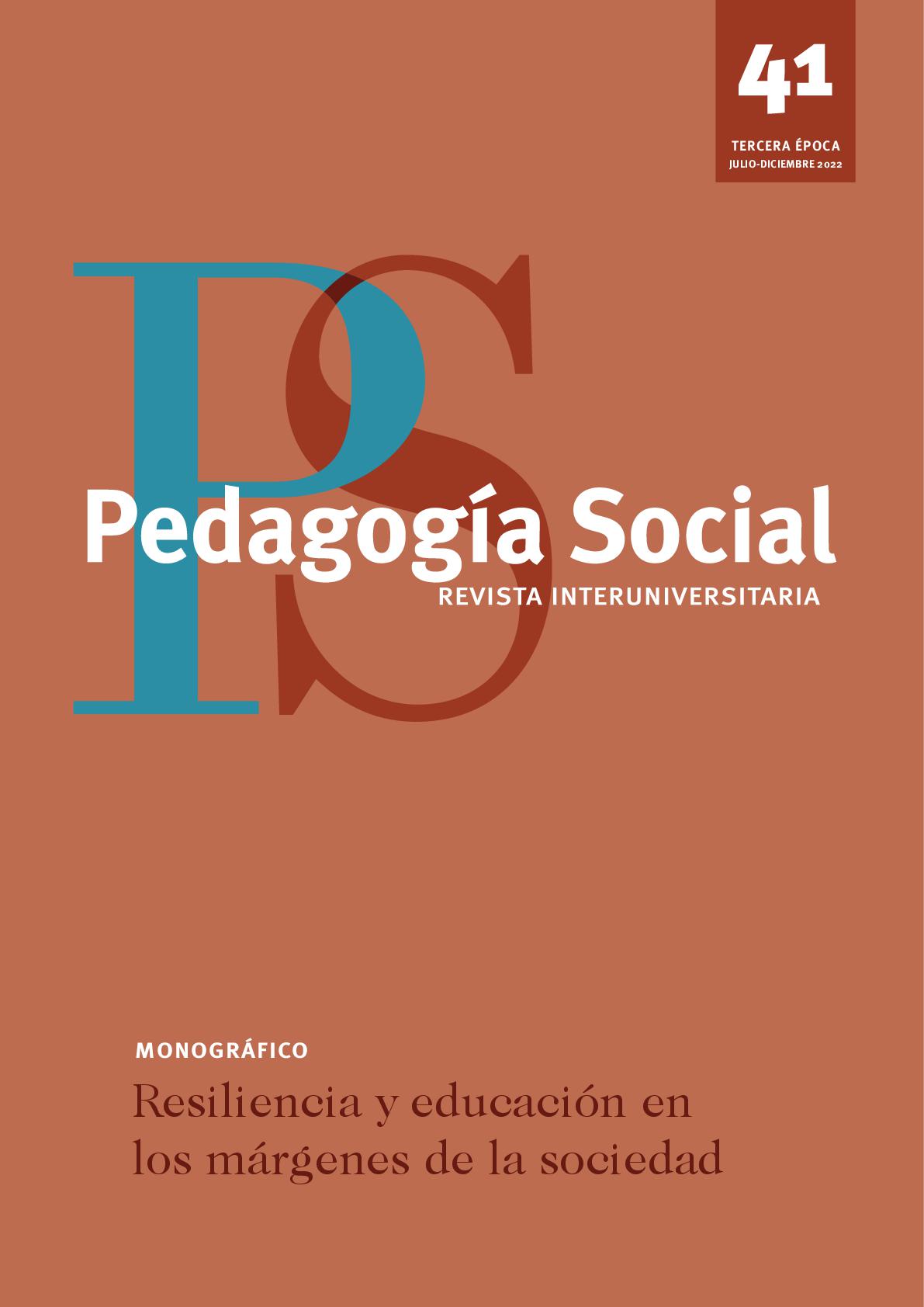
Resilience and education at the margins of society
No. 41 (2022)This monograph addresses the issue of resilience and the challenges it presents. It offers new perspectives for its analysis and consideration that go beyond the individual quality, but also as a social process and community contextual interaction. All of this is done by situating resilience in the particular framework of the margins of society, that of social inequality, lack of opportunities, closed institutions and social and educational exclusion.
-
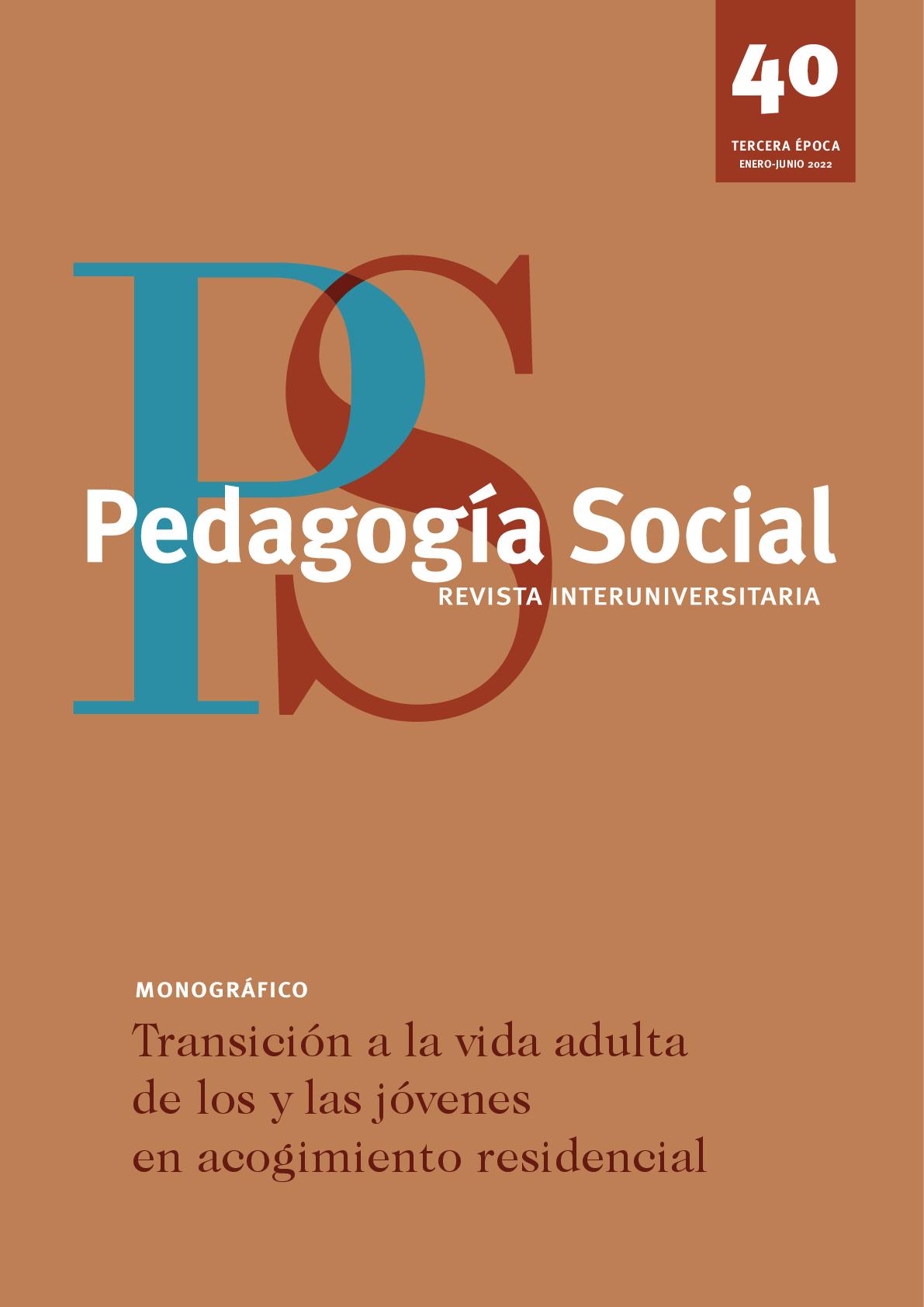
Transition to adulthood for young people in residential care
No. 40 (2022)This monograph reviews the role of residential care systems in the care and support received by young people. It analyses the situation of outgoing youth, as well as the training provided by programmes and actions of various kinds to try to support them, favour their autonomy and psychological well-being and improve their incorporation into the adult world
-
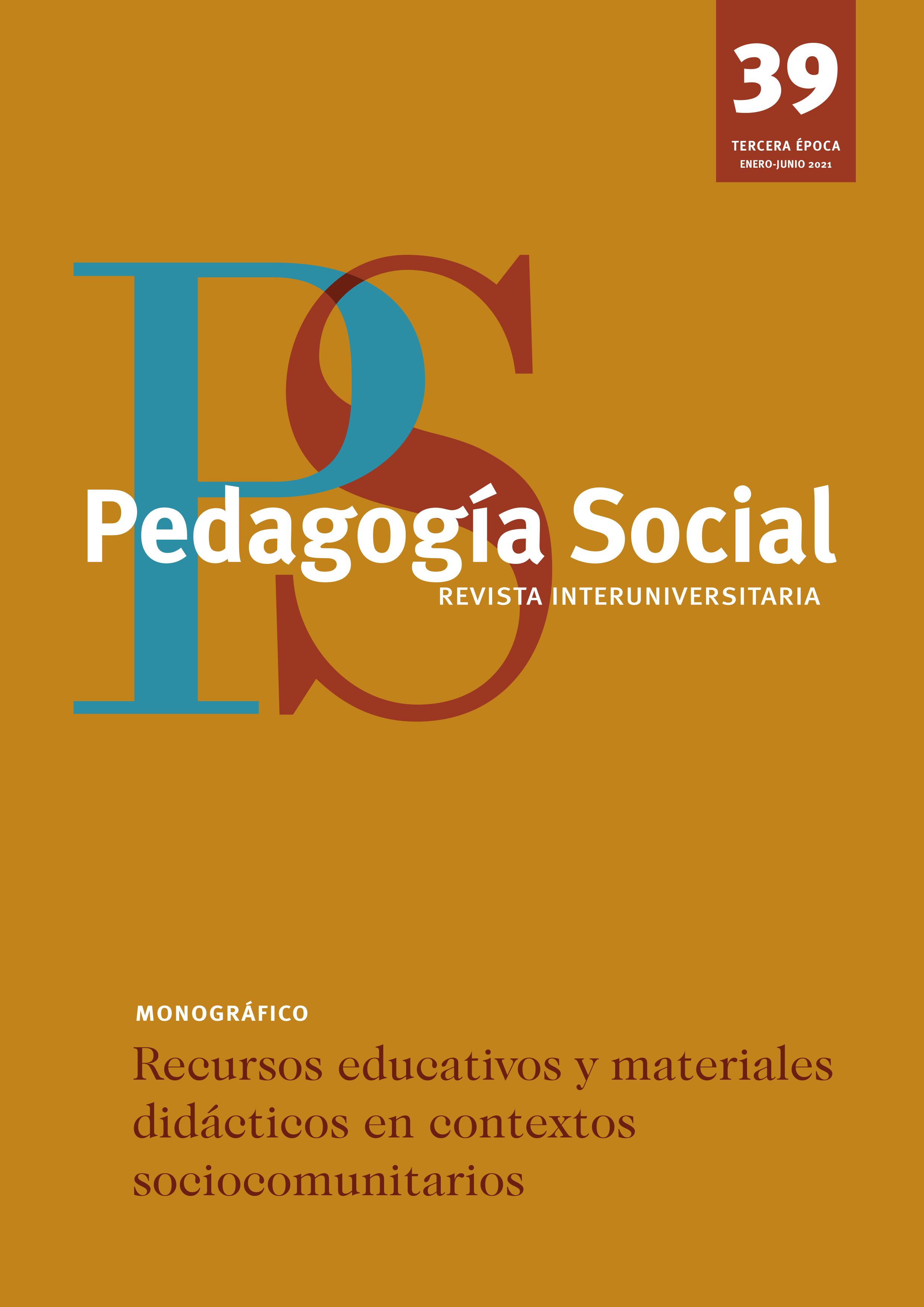
Recursos educativos y materiales didácticos en contextos sociocomunitarios
No. 39 (2021)In this current special issue of PSRI we provide a serie of papers that intend to deepen the understanding of educational resources and didactic materials, as well as their basic functions, their selection and their application, with the aim of stimulating reflection and debate on their potentials and limitations in the service of community development -
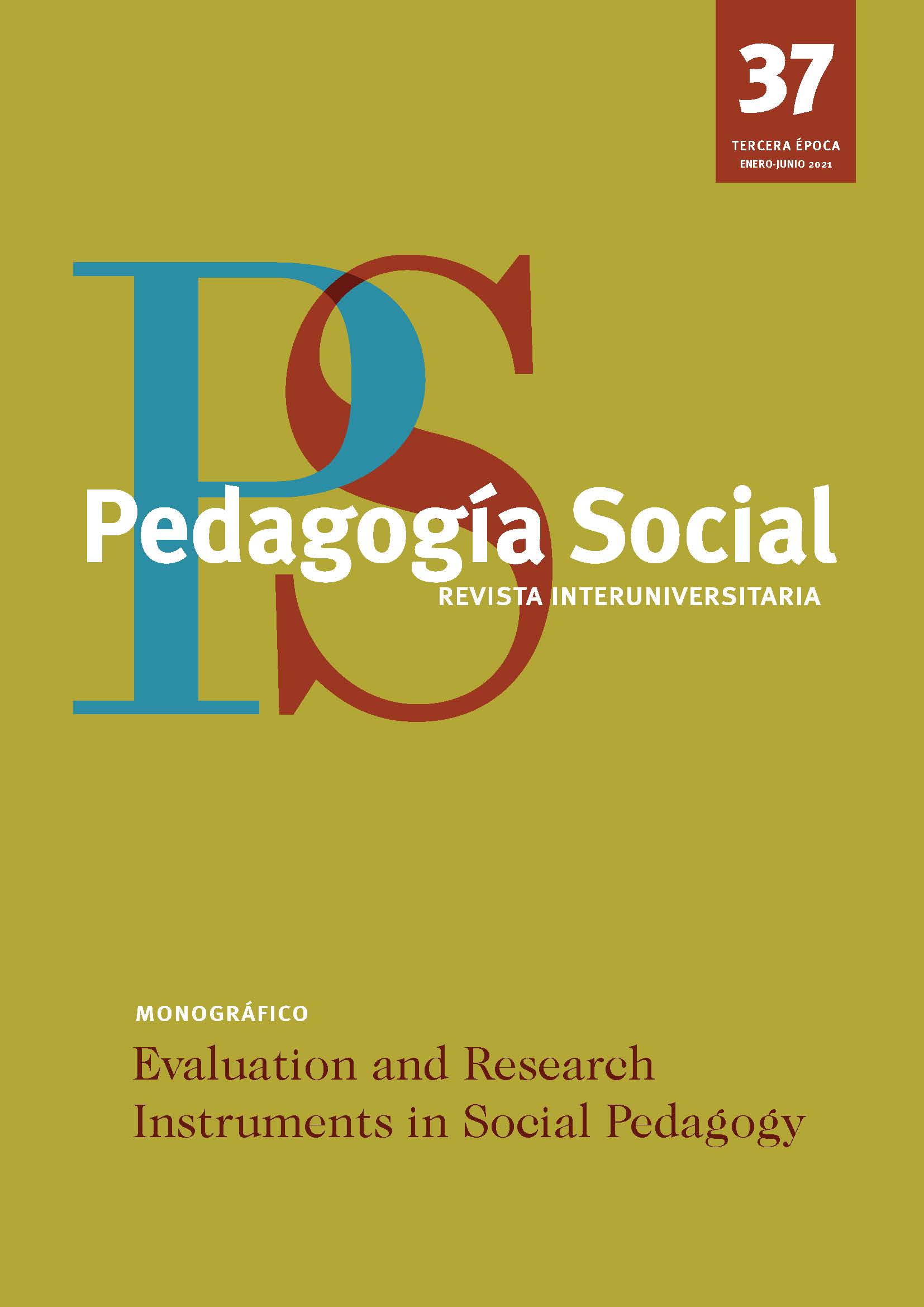
Evaluation and Research Instruments in Social Pedagogy
No. 37 (2021)In the current issue we report and discuss various types of tools for research and socio-educational assessment, essential to begin with any intervention process. In this monographic issue we find the idea of the need to strenghthen research performances among professionals from Social Pedagogy in line with an evaluative perspective which allows assessment and research processes using reliable and validated instruments, adapted to contexts of development and life of the people we approached.
-
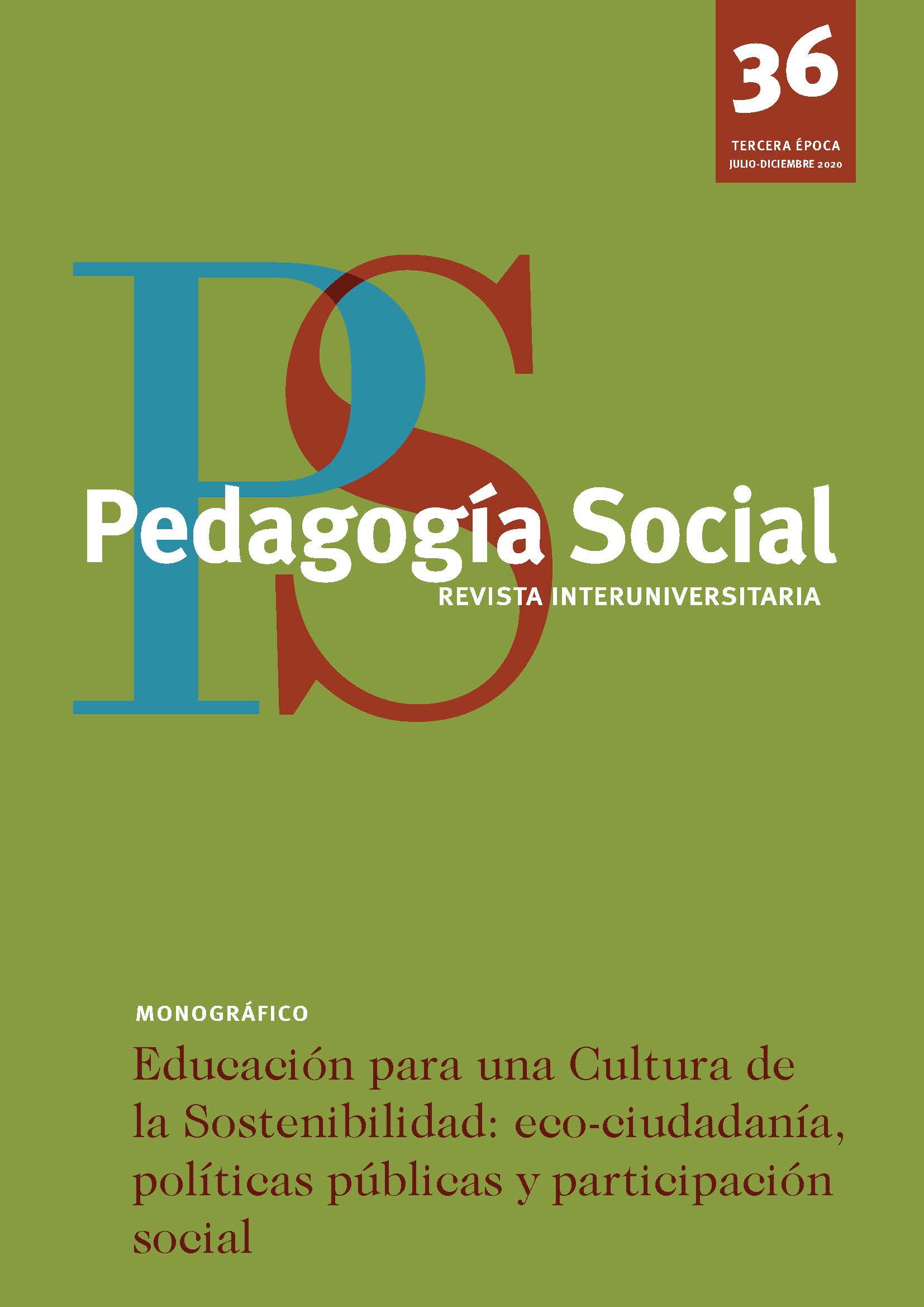
Education for a Culture of Sustainability: eco-citizenship, public policies and social participation
No. 36 (2020)In this monographic we analyzed the subject of the Environmental Education (EE) that has little more than 50 years of history . It was born in the late sixties of the 20th century. Its initial intention was to transform education so that human societies reconsider their place in a biosphere with a limited capacity to sustain its accelerated and exponential growth. Currently, EE has to respond to an extreme situation, forced by scientific evidence that we have entered a point of no return marked by the climate crisis and other systemic impacts of human activity on the biosphere. How to redefine the pedagogical and social role of EE in this scenario?
-
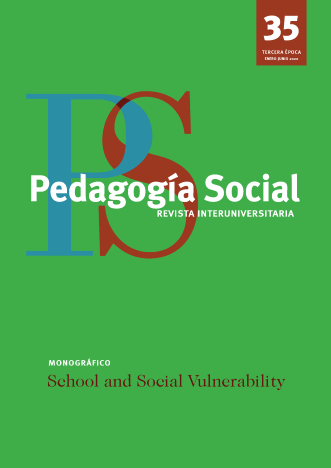
School and Social Vulnerability
No. 35 (2020)In this monograph we deal with children's social vulnerability and its relationship with the school setting. The subject is analyzed from different angles that relate this vulnerability to economic crises, situations of displacement and migration, ethnic bullying, social welfare and games; understanding the game as an instrument for the specific prevention of bullying. Finally, the vision of vulnerable childhood is analyzed from human rights, in a system of relationships that connects the family, the school and the community.
-
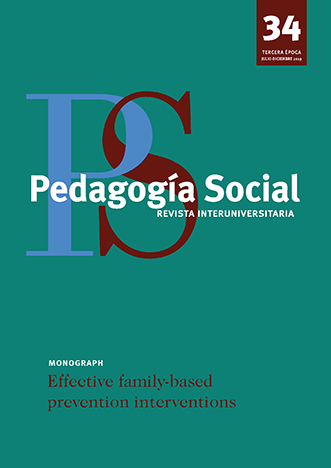
Effective family-based prevention interventions
No. 34 (2019)The present issue focuses on the analysis of different types of efficient interventions on family prevention from the perspective of the paradigm of research based on evidence. It gathers contributions that describe and analyze socio-educational intervention programs concerning behavior, drug consumption and other problematic conducts in the family context, from the approach of positive parenthood.
-
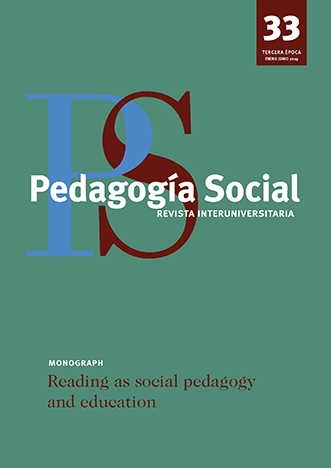
Reading as social pedagogy and education
No. 33 (2019)The current SPECIAL monographic issue focuses on reading and social and reading practices. It is based on a strategic line of great interest to this journal, consisting in building bridges and widening the analysis and reflection on related disciplines with a resilient projection and content for social action. -
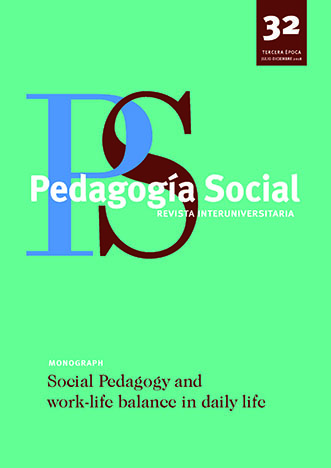
Social Pedagogy and work-life balance in daily life
No. 32 (2018)In this monographic, we deal with a new and original approach to the use of time, in this case the time shared within a daily family environment, analyzed from an critical perspective committed to education, where reconciliation, co-responsibility and equal rights are the main and unavoidable axes for Social Pedagogy -

Education and leisure of vulnerable youth
No. 31 (2018)In this monograph, we approach as a nuclear issue the practices of education, leisure and leisure time use in a specific type of young people, those that present a certain level of vulnerability or a situation of potential social risk. The different contributions analyse the problem and present strategies to guide socio-educational intervention. -
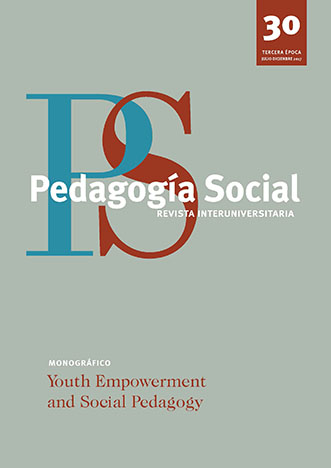
Youth Empowerment and Social Pedagogy
No. 30 (2017)The present monographic issue pedagogically develops and delimits the concept of empowerment, in particular when applied to young people, describing experiences, spaces, interpretations and meaning that young people attribute to this concept, as well as the capabilities and competences that are required in order to articulate reliable educational processes in order to promote this term. -
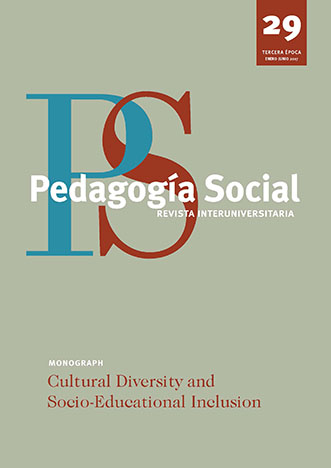
Cultural Diversity and Socio-Educational Inclusion
No. 29 (2017)In this monographic we present a series of educational innovations that seek to anticipate answers to new challenges and needs of the current school facing the challenge of cultural diversity and social and educational inclusion -
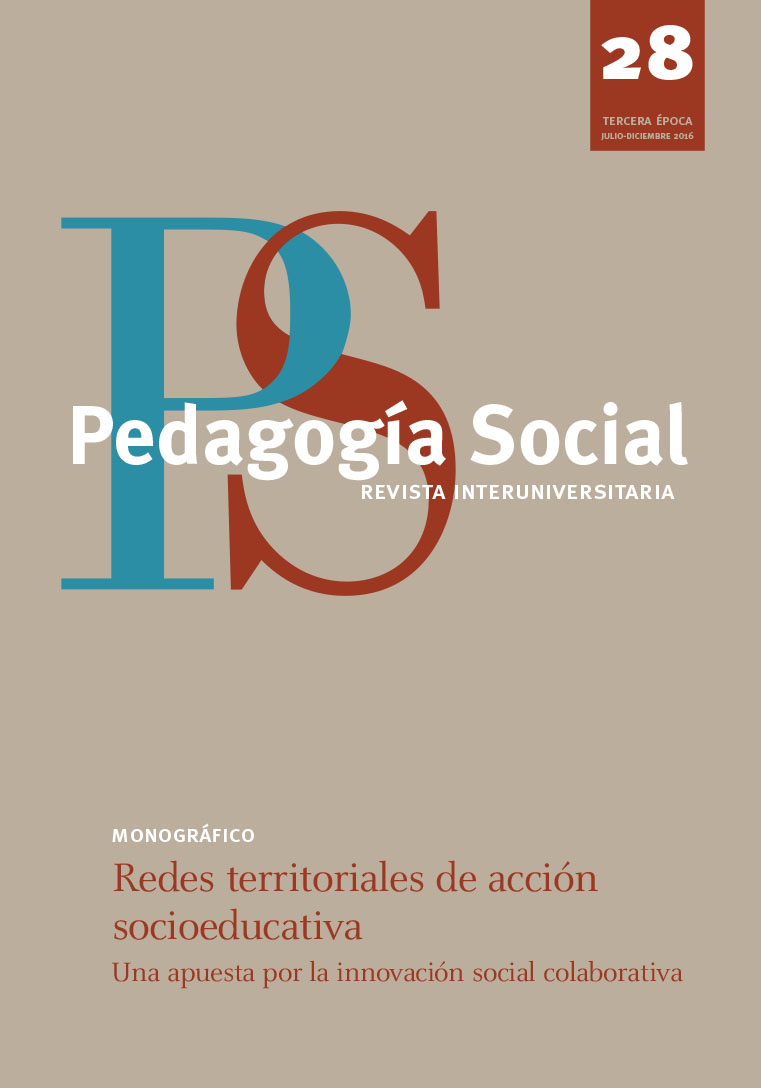
Territorial networks of social-educational action, an investment in collaborative social innovation
No. 28 (2016)In this special issue diverse experiences of territorial networks development are analyzed, conformed as new ways of coordination and optimization of interventions between social agents. This networks are emerging as innovative ways of effective assistance to social-educational needs of citizens, to boost collaborative social innovation and to contribute to build social capital in local communities.
-
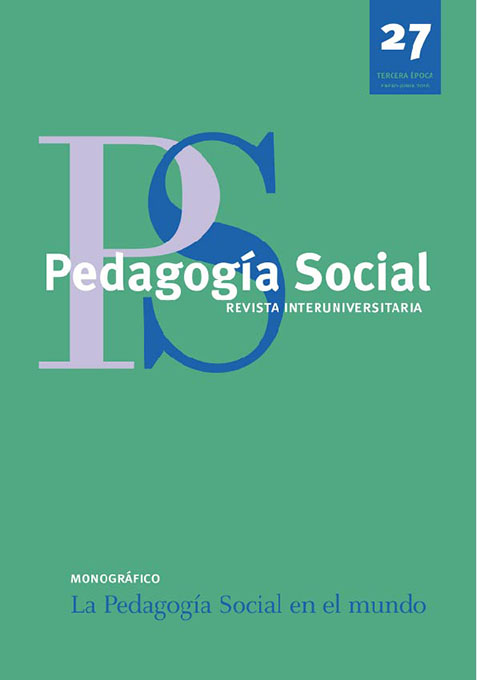
Social Pedagogy in the world
No. 27 (2016)In this special issue we commemorate 30 years of life of our magazine, since its birth in 1986. For this reason, the monograph reflects the presence and development of social pedagogy in a wide range of contexts and countries around the world, with the participation of experts from Germany, Denmark, Finland, Sweden, Spain, Russia, Uruguay, Brazil, United Kingdom, United States, Japan and South Africa -
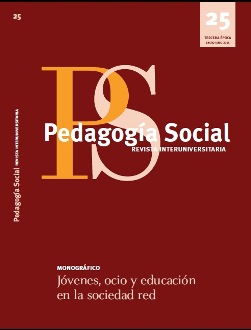
Young people, leisure and education in the network society
No. 25 (2015)Número 25 de Pedagogía Social. Revista Interuniversitaria. Incluye un monográfico sobre "Jóvenes, ocio y educación en la sociedad red".

